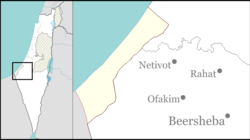Within
Israel | - Azor attack 3 (February 14, 2001)
- Netanya bombing 2 (March 4, 2001)
- 1st HaSharon Mall entrance suicide bombing (May 18, 2001)
- Dolphinarium discotheque massacre 2 (June 1, 2001)
- Binyamina train station suicide bombing (July 16, 2001)
- Sbarro restaurant suicide bombing 2 (August 9, 2001)
- Nahariya train station suicide bombing (September 9, 2001)
- Camp 80 junction bus 823 attack (November 29, 2001)
- Ben Yehuda Street Bombings (December 1, 2001)
- Haifa bus 16 suicide bombing (December 2, 2001)
- Hadera attack (January 18, 2002)
- Tel Aviv outdoor mall bombing (January 25, 2002)
- Jaffa Street bombing (January 27, 2002)
- Karnei Shomron Mall suicide bombing (February 16, 2002)
- Yeshivat Beit Yisrael bombing (March 2, 2002)
- Seafood Market attack (March 5, 2002)
- Atzmona attack (March 7, 2002)
- Café Moment bombing (March 9, 2002)
- Matzuva attack 1 (March 12, 2002)
- Egged bus 823 bombing (March 20, 2002)
- King George Street bombing (March 21, 2002)
- Passover massacre (March 27, 2002)
- Kiryat HaYovel supermarket bombing (March 29, 2002)
- Matza restaurant suicide bombing (March 31, 2002)
- Yagur Junction bombing (April 10, 2002)
- Mahane Yehuda Market bombing (April 12, 2002)
- Rishon LeZion bombing (May 7, 2002)
- Netanya Market bombing (May 19, 2002)
- Pi Glilot bombing attempt (May 23, 2002)
- Megiddo Junction bus bombing (June 5, 2002)
- Herzliya shawarma restaurant bombing (June 11, 2002)
- Patt Junction bus bombing (June 18, 2002)
- Neve Shaanan Street bombing (July 17, 2002)
- Hebrew University bombing (July 31, 2002)
- Meron Junction Bus 361 attack (August 4, 2002)
- Allenby Street bus bombing (September 19, 2002)
- Karkur junction suicide bombing (October 21, 2002)
- Metzer attack (November 2, 2002)
- Kiryat Menachem bus bombing (November 21, 2002)
- Beit She'an attack (November 28, 2002)
- Tel Aviv central bus station massacre (January 5, 2003)
- Haifa bus 37 suicide bombing (March 5, 2003)
- Mike's Place suicide bombing (April 30, 2003)
- Jerusalem bombings (May 18, 2003)
- Afula mall bombing (May 19, 2003)
- Davidka Square bus bombing (June 11, 2003)
- Murder of Oleg Shaichat (July 28, 2003)
- Shmuel HaNavi bus bombing (August 19, 2003)
- Tzrifin bus stop attack (September 9, 2003)
- Café Hillel bombing (September 9, 2003)
- Maxim restaurant suicide bombing (October 4, 2003)
- Geha Interchange bus stop bombing (December 25, 2003)
- 2004 Erez Crossing bombing 3 (January 14, 2004)
- Gaza Street bus bombing (January 29, 2004)
- Liberty Bell Park bus bombing (February 22, 2004)
- Ashdod Port bombings (March 14, 2004)
- Beersheba bus bombings (August 31, 2004)
- Carmel Market bombing (November 1, 2004)
- Karni border crossing attack (January 13, 2005)
- Stage Club bombing (February 25, 2005)
- 2nd HaSharon Mall entrance suicide bombing (July 12, 2005)
- Hadera Market bombing (October 26, 2005)
- 3rd HaSharon Mall entrance suicide bombing (December 5, 2005)
- 2nd Rosh Ha'ir restaurant bombing (April 17, 2006)
- Gaza cross-border raid 2 (June 25, 2006)
- Eilat bakery bombing (January 29, 2007)
- Dimona suicide bombing (February 4, 2008)
- Jerusalem yeshiva attack (March 6, 2008)
- Jerusalem bulldozer attack (July 2, 2008)
- Jerusalem BMW attack (September 22, 2008)
|
|---|
| West Bank | - Ramallah lynching (October 12, 2000)
- Murder of Binyamin Ze'ev Kahane (December 31, 2000)
- Murder of Ofir Rahum (January 17, 2001)
- Assassination of the Israeli Minister of Tourism Rehavam Ze'evi 2 (October 17, 2001)
- Murder of Shalhevet Pass (March 26, 2001)
- Palestinian fatal stoning attack (June 5, 2001)
- Murder of Georgios Tsibouktzakis (June 12, 2001)
- Immanuel bus attack (December 12, 2001)
- Ein 'Arik checkpoint attack (19 February 2002)
- Wadi al-Haramiya sniper attack (March 3, 2002)
- French Hill Junction suicide bombing (June 19, 2002)
- Itamar attack (June 20, 2002)
- Immanuel bus attack (July 16, 2002)
- Sonol gas station bombing (October 27, 2002)
- Hebron ambush (November 15, 2002)
- Yeshivat Otniel shooting (December 27, 2002)
- Kidnapping and murder of Sasson Nuriel (September 21, 2005)
- Kedumim bombing (March 30, 2006)
- Murder of Eliyahu Asheri (June 25, 2006)
- Nahal Telem shooting (December 28, 2007)
- Bat Ayin axe attack (April 2, 2009)
- Killing of Rabbi Meir Hai (December 24, 2009)
|
|---|
